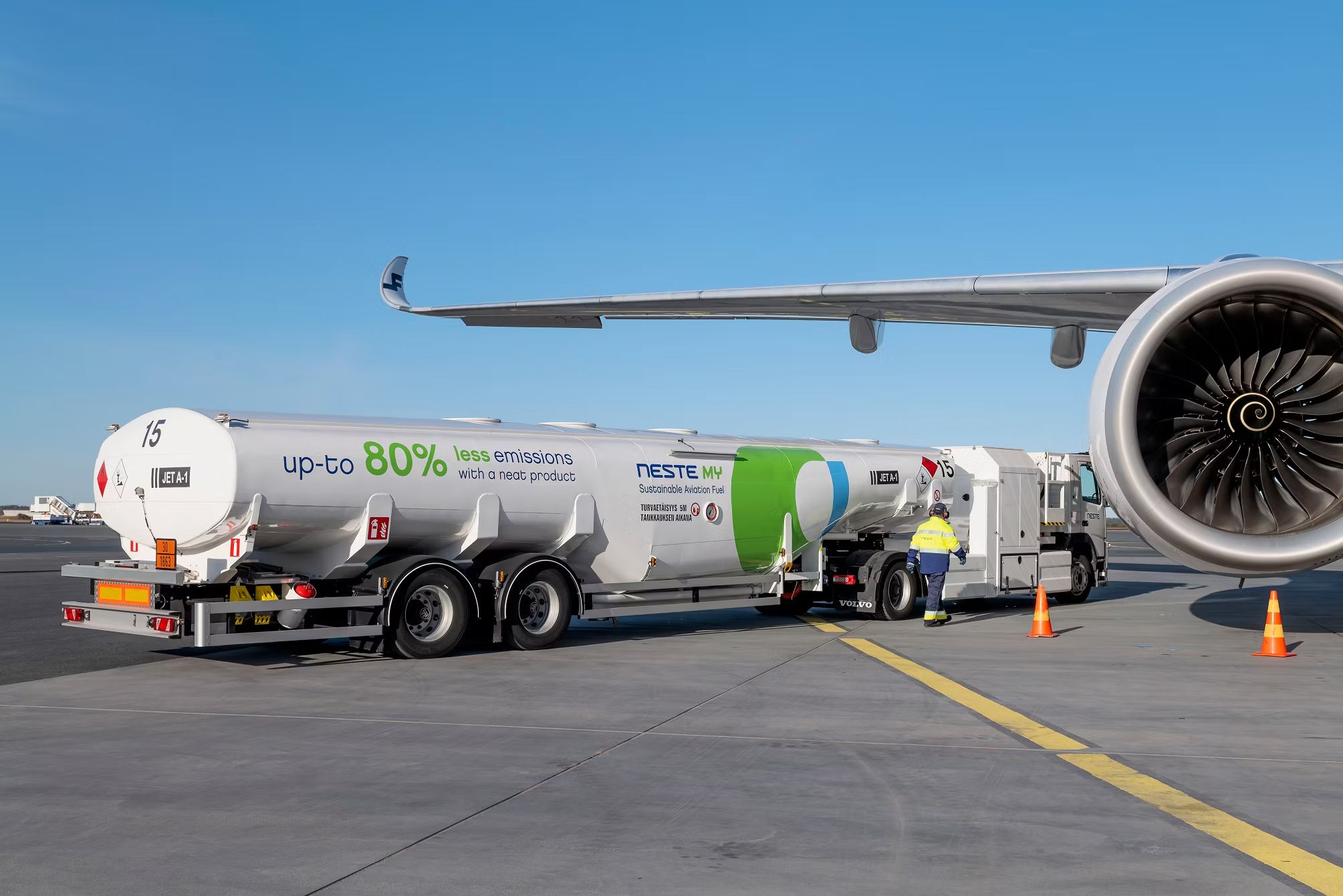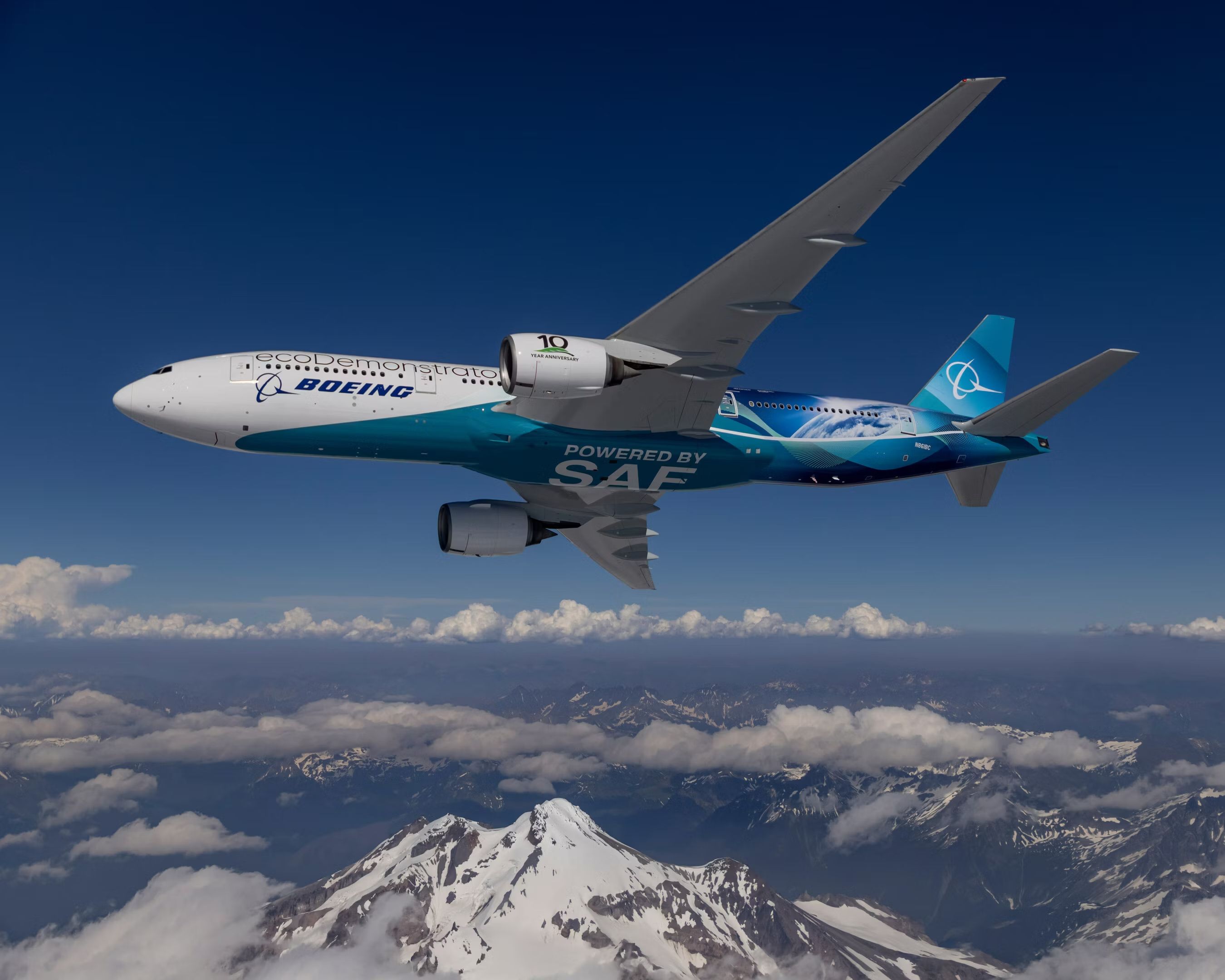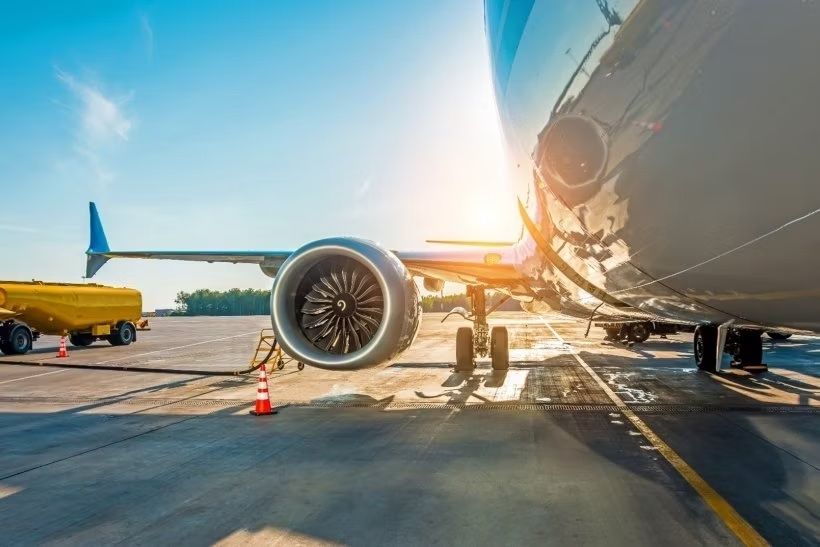Summary
- International Airlines Group (IAG) and Microsoft collaborate to purchase 14,700 gallons of Sustainable Aviation Fuels (SAF) to achieve sustainability goals and reduce carbon emissions.
- Microsoft sees the importance of SAF and decarbonization in aviation, aiming to address emissions from business travel and freight while supporting future SAF development.
- IAG recognizes the critical role of SAF in long-term decarbonization efforts and highlights the significance of corporate partnerships, with this collaboration being a victory for their sustainability initiatives.
On 14 August 2023, the International Airlines Group (IAG), an international conglomerate that includes British Airways and Iberia, announced a large purchase of Sustainable Aviation Fuels (SAF) in collaboration with American software giant Microsoft. The purchase will enable both companies to continue achieving their sustainability goals.
The deal involves the purchase of 14,700 gallons of SAF and will permit Microsoft to continue reducing its Scope 3 carbon emissions, those from air freight and business travel. Ultimately, the company has set a goal of becoming fully carbon-neutral by 2030.
Photo: Airbus
The SAF will be produced from used cooking oil by Phillips 66's Humber refinery in Northern England, a nation that has been eager to develop a manufacturing sector for sustainable fuels. IAG has indicated that the 14,700 gallons of SAF should be able to fuel over 300 787 Dreamliner flights between London Heathrow International Airport (LHR) and Seattle-Tacoma International Airport (SEA), where Microsoft's world headquarters are located.
A win for Microsoft
The announcement comes as a strong win for the American tech firm, as it will be able to continue moving towards carbon-neutral status. Julia Fidler, environmental sustainability fuel and materials decarbonization lead at Microsoft, issued the following statement regarding the announcement:
"Reducing emissions from aviation through decarbonization efforts such as this, whilst recognizing the societal and economic benefits of flying requires increased commitment from all stakeholders."
Photo: Boeing
Here, Microsoft has clearly identified the importance of SAF and decarbonization in commercial aviation and has taken strong strides to address the issue. When speaking more on the company's own goals, Fidler had the following to say:
"This agreement represents a new milestone in SAF purchasing that will allow Microsoft to address emissions from both our business travel and freight for our cloud supply chain, while helping to fund future SAF development and scale the market as a whole."
A win for IAG
The announcement also comes as a victory for IAG's sustainability efforts. In a statement regarding the purchase Jonathon Counsell, head of sustainability at the airline conglomerate, said the following:
"The development of SAF is critical for the long-term decarbonization of our industry. Strong commercial partnerships like this will help stimulate the global investment needed to build and sustain a commercially viable SAF market. We are pleased to see high profile organizations like Microsoft leading the way."
Here, Counsell accurately indicates that corporate partnerships will be critical for the success of IAG's SAF efforts. This joint purchase is not the first announced by IAG this summer, with a partnership between IAG's cargo division and logistics firm Kuehne+Nagel announced just last month.
Photo: Department of Energy
With SAF being the critical technology that could help the aviation industry make significant strides towards carbon neutrality, it is not surprising to see IAG place such a strong effort on its expanded use. Ultimately, SAF can reduce carbon emissions by upwards of 80% in comparison to traditional jet fuel. With nearly 60,000 employees and operating a fleet of 558 aircraft, the group's sustainability efforts could ultimately have an incredible impact on the aviation industry as a whole.
Source: BTN Europe





0 Comments